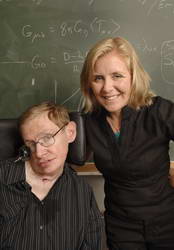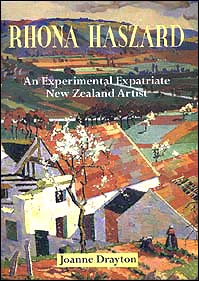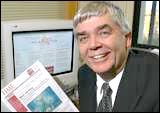Film Review – Margaret – 1/9/00
Put your preconceptions of Jane Austen’s novels on one side and go to this film and I think you will enjoy it. You will also come out able to join in the spirited conversations which are happening among so many filmgoers and Jane Austen addicts.
"Mansfield Park" was on the compulsory reading list for two courses during my education and I remember thinking, "Why couldn’t it be ‘Pride and Prejudice’ or ‘Emma’ instead of ‘Mansfield Park’ with that soppy Fanny Price and priggish Edmund Bertram at the centre of the story?"
Fanny Price more lively I think that one reason why the film is more enjoyable than the book for modern audiences is that Fanny has had a physical transformation. Certainly in the scenes of the homesick ten year old at the beginning so convincingly played by Hannah Taylor Gordon, Fanny appears frail and undernourished, a victim of circumstance. However in the rest of the film Fanny is not short of energy. Gone are the headaches and spells of fatigue of Fanny in the novel. Playing a character who has been given more buoyant spirits Frances O’Connor shows her emotions in her lively face and expressive eyes and in her energetic reactions, running across the courtyard or up the stairs, dancing with obvious enjoyment or riding fast across the country – a dynamic portrayal.
If you see the purpose of the film as portraying strictly the Jane Austen novel it can be argued that this is not a faithful portrayal of the heroine and purists may object to it. However, this more appealing Fanny Price is more likely to hold the attention of the viewers instead of irritating them, and will add to the success of the film if the aim is to tell the story, portray the characters and the period, and present the underlying issues in the novel.
What sort of story is told in "Mansfield Park"? It could be described as a typical Mills and Boon plot. Fanny, a girl from a poor background, is taken to the home of wealthy relatives and treated a little like Cinderella, but develops a strong character beneath her usually meek exterior. She falls in love with her cousin who treats her with kindness and respect, but he falls in love with a beautiful, sophisticated woman. Fanny is courted by the woman’s wealthy brother but she believes him to be untrustworthy. She will not be won over. Subsequent events prove her right, and in the end she marries the cousin she has loved so long.
Characterisation If this were all there was to the film there would be little to discuss. As in all Jane Austen’s novels much of the interest is in the character portrayal and the way this is revealed through conversation. Seemingly chance remarks, the way a player approaches a game of cards, the different ways people react to the presentation of a play, or their reception of bad news all build up a detailed picture of the people in the cast. In the film of course facial expression and body language enrich Jane Austen’s dialogue, particularly in O’Connor’s acting of Fanny. Johnny Lee Miller plays Edmund Bertram, Fanny’s cousin, as kindly but lacking dynamism – much as Jane Austen portrayed him.
Embeth Davidtz as Mary Crawford who so attracts Edmund is attractive and vivacious – more lively than her brother Henry, played by Alessandro Nivola. We are not shown their revealing conversations with each other included in the novel, so both seem pleasant well-meaning people until their shallowness is ultimately revealed.
Sir Thomas Bertram, Fanny’s stern uncle, is played very convincingly by Harold Pinter.
As in the novel a small incident is used to convey concisely some of the understated themes. Sir Thomas is pleased that Fanny has attracted a wealthy suitor so in an unusually friendly gesture goes to her room to talk to her. He sees that the fire is not lit, and discovers that she has never been allowed to have one on the orders of Mrs Norris, Lady Bertram’s unpleasant sister. Because of the length of the novel much must be cut. Mrs Norris has been described as one of the most hated characters in English fiction because of her treatment of Fanny. This theme is only lightly touched on in the film.
The portrayal of the minor roles is not outstanding, but the producer may have deliberately played down the emphasis on these people, seeing them merely as stylised figures needed to provide a background for Fanny’s story.
New material While many scenes in the novel are cut, new scenes are added and underlying themes in the book are made more explicit. This has roused the ire of many of the Jane Austen purists. However, the script writer and director of the film, Patricia Rozema, studied Jane Austen’s other published writings and the work of critics so that she could expand the themes as she felt Jane Austen herself might have done.
She felt fully justified in portraying Fanny as a woman of independent spirit despite her dependent position. Her life is full of difficulties as she copes with victimisation from Aunt Norris, a shock adjustment to the poverty and squalor of her home and the coarseness and possible worse characteristics of her father on her return to Portsmouth, and the need to reject what seems like a most advantageous marriage. Jane Austen is clearly concerned about the virtual captivity of women who unless they have private means must depend on marriage for financial support.
The themes of slavery and the abolitionist movement are clearly presented in the film – not just underlying themes as in the book. Fanny’s journey from Portsmouth is not described in the novel, but in the film she hears slaves singing in a sailing ship moored near the shore as she travels and years later she picks up a book of her cousin Tom’s sketches showing the ill treatment of slaves which he had witnessed in Antigua where Sir Thomas has plantations. Fanny is bold enough to express her view on slavery and the abolition movement, though she realises that the comfort she enjoys at Mansfield Park comes from income derived from slave labour.
When I saw in the newspaper advertisement for "Mansfield Park" SEX SCENES, I thought at first that the film must bear no relation to Jane Austen’s novel. I was wrong, of course. The one very brief scene that can be so described shows adultery under the roof of Mansfield Park, which did not occur in the novel which only tells of the couple going away together and the resultant disgrace and the impact on the family. Fanny witnesses the adultery which gives the chance to show her reaction – probably the main value of the scene. Maybe its inclusion allows for the extra words in the advertisement and draws bigger audiences!



